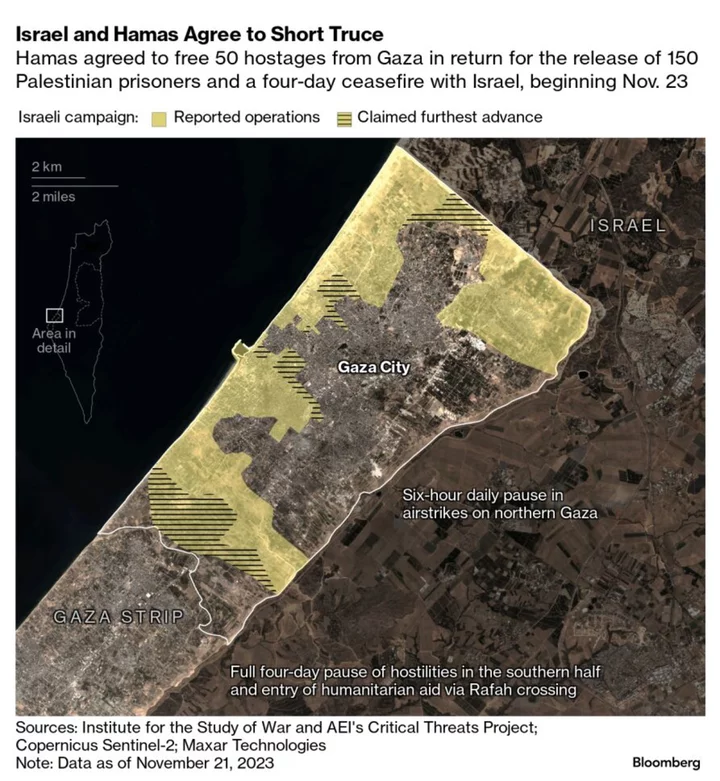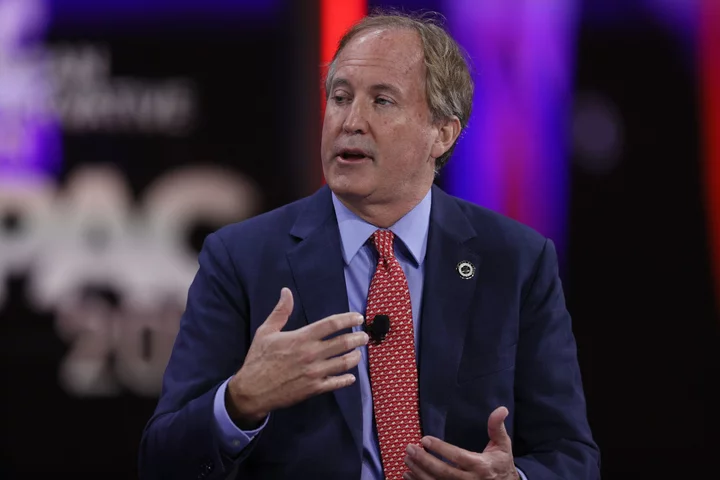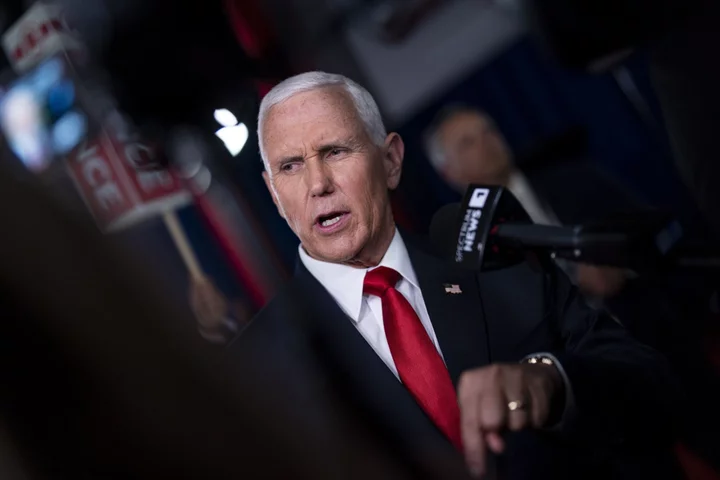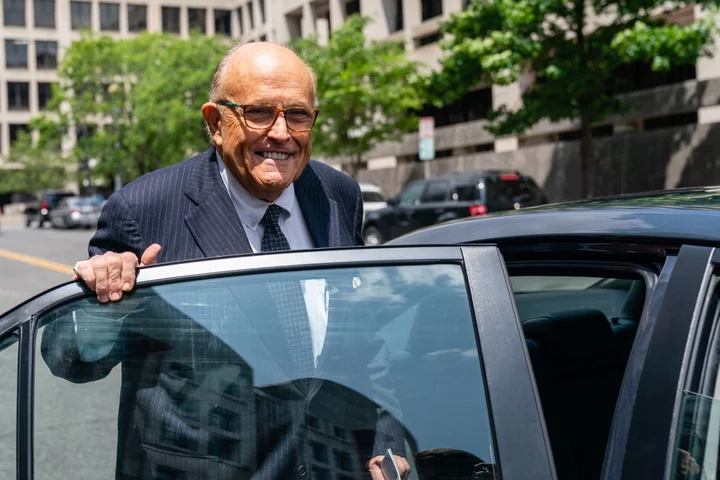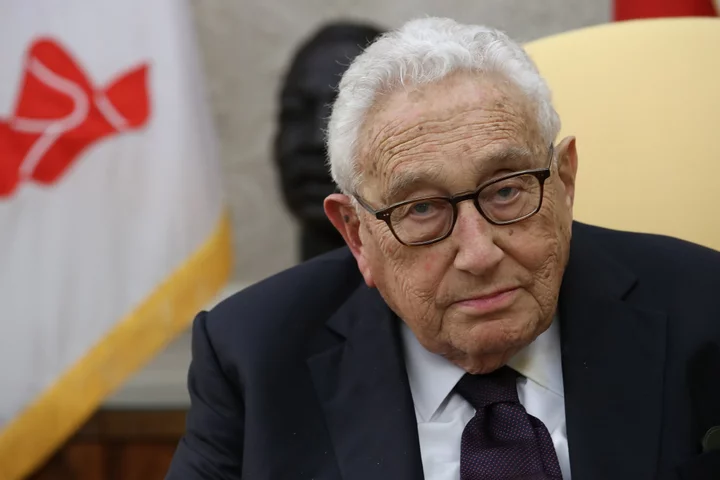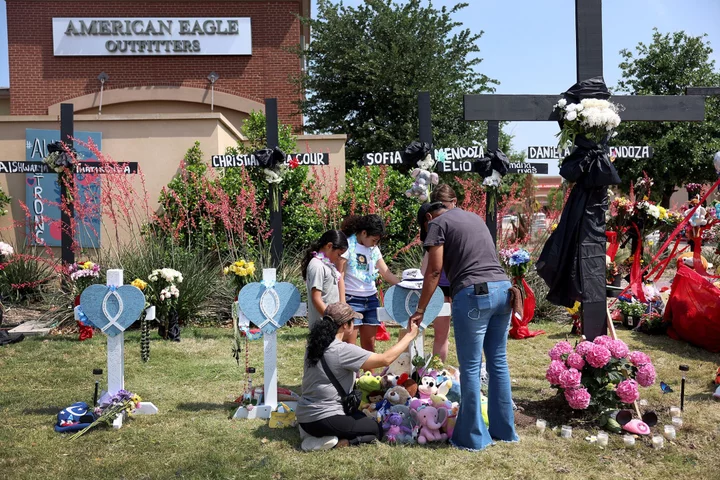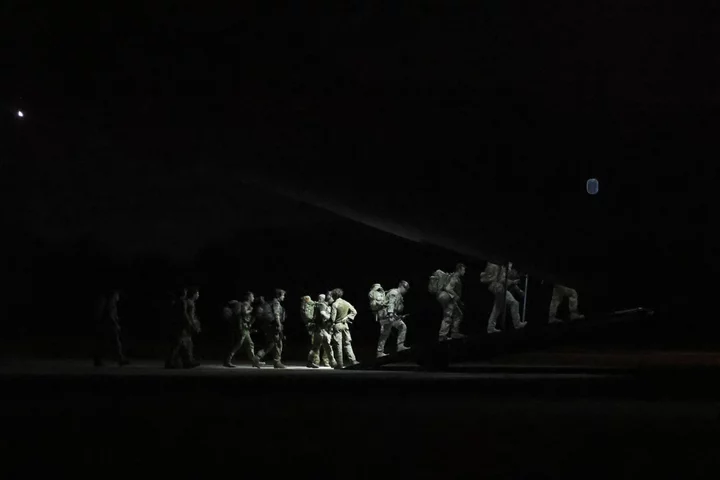Israel and Hamas braced for a short-term cease-fire that would allow for the release of dozens of hostages, as they prepared to begin implementing a complex agreement that would mark the first halt in fighting since their war began.
In a sign of the accord’s fragility, though, the head of Israel’s National Security Council said that the hostage releases will begin “not before Friday,” rather than early Thursday as previously expected.
President Joe Biden spoke Wednesday with key players involved in the fraught negotiations that led to the deal, highlighting the uncertainly over the agreement and the pressure to ensure both sides follow through.
Biden discussed the developments with Israeli Prime Minister Benjamin Netanyahu, Qatari Emir Sheikh Tamim bin Hamad Al Thani and Egyptian President Abdel-Fattah El-Sisi, according to the White House. The deal was mediated by Qatar, which hosts many of Hamas’s leaders, and involved other countries eager to keep the six-week war from escalating further.
Israeli media have reported that the cease-fire would start only after the Red Cross receives Israeli hostages from Hamas, which is designated a terrorist group by the US and the European Union. Tzachi Hanegbi, head of Israel’s National Security Council, said “the release will begin according to the original agreement between the parties, and not before Friday.” He said “negotiations on the release of our hostages are progressing and continuing all the time.”
Under the deal, Hamas agreed to free 50 hostages from Gaza in return for a four-day cease-fire and the release of 150 Palestinian prisoners by Israel. More aid is also expected to flow into Hamas-controlled Gaza to alleviate what the United Nations and Palestinian officials there say is a humanitarian disaster. A second stage could see the pause in fighting extended another day for every 10 additional hostages released, according to Netanyahu’s office.
Biden said in a statement Tuesday, shortly after the deal was announced, that the US would work to ensure it is “carried through in its entirety,” hinting at its complexity and worries that it could break down.
But the agreement still falls short of calls from many nations for an extended cease-fire, which Israel and the US have rejected, saying it would allow Hamas to rearm.
Read more: Cease-Fire Won’t End Israel’s War on Hamas But Might Change It
Success of the deal has high stakes for Biden, who faces pressure from many in his own party to bring an end to Israel’s offensive in Gaza, launched after the Oct. 7 Hamas attack that killed 1,200 people and saw 240 taken hostage.
Qatar said the “humanitarian pause” could help stop the war and lead to a “just peace process.”
Netanyahu, though, has made clear Israel won’t let up in its bid to eliminate Hamas. At a news conference on Wednesday, he said the deal came together in part due to Israel’s military pressure on the militant group.
Netanyahu said he thanked Biden for helping improve the agreement and said he told the US president “we are committed to destroying Hamas, getting all of our hostages back and making sure Gaza is no longer a threat to Israel.”
He also said he had instructed the Mossad, Israel’s aggressive intelligence agency, “to act against the leaders of Hamas wherever they are.”
Israeli Defense Minister Yoav Gallant said Hamas’s leaders were “living on borrowed time,” and the fight against them would “span the entire globe”
Diplomatic efforts to contain the conflict continued Wednesday, highlighting the tenuous nature of the accord. An Arab delegation headed by Saudi Arabia’s top diplomat, Prince Faisal bin Farhan, visited London, and is headed next to Paris for talks with French President Emmanuel Macron.
Jordan’s Foreign Minister Ayman Safadi warned the longer Israel presses ahead with its offensive, the greater the risk of a wider conflict.
There is a concern “if we get to a certain point there’s no going back,” he said.
--With assistance from Galit Altstein.

